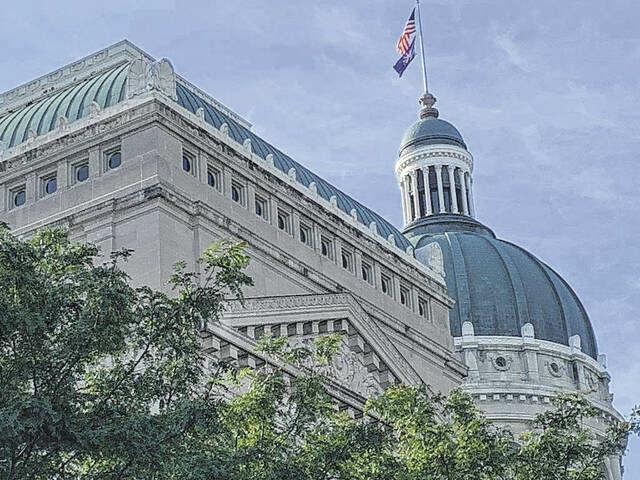Several new laws protect Hoosier kids
We gave the Indiana General Assembly some barbs this session over their attention-grabbing efforts to muzzle teachers and handcuff librarians — bills that died amid vocal opposition.
Those efforts were cloaked in the perhaps well-intended but unconstitutional language of “protecting children from harmful materials.” Hoosiers realize children face more real-world harms than what they might read in a book or hear in a history lesson. And to their credit, lawmakers passed a few bills that will protect children. We’d like to highlight a few.
More reporting of child death data
For years, Indiana has tried with mixed results to improve child safety. Of the 281 child deaths in 2020, 50 were due to caregiver abuse or neglect, and 13 of those involved children who had prior involvement with the Indiana Department of Child Services.
A bill authored by Rep. Ryan Lauer, R-Columbus, and signed into law by Gov. Eric Holcomb, will now standardize the data that must be collected on a child fatality report, including whether abuse or neglect was substantiated and whether DCS had any prior involvement with that child.
No child should ever die at the hands of a caregiver. That this sort of data collection wasn’t previously required by law was a grievous shortcoming. Lawmakers recognized that — not a single vote was cast against Lauer’s commonsense legislation. House Enrolled Act 1247, which has real potential to protect children and save innocent lives, takes effect July 1.
Barring school employee misconduct
Another shortcoming in state law was addressed, this one ensuring that licensed teachers and school employees who commit a crime that would require their license be revoked may no longer be employed in public or charter schools.
We’d like to think this is a rare occurrence, but Senate Enrolled Act 115 makes clear that schools may not continue to employ a licensed professional convicted of a crime that would require their license be revoked. The law had been vague on this where current employees were concerned, saying only that schools could not “hire” or “contract with” someone with a criminal record that would require license revocation.
This act removes any question, stating clearly that no one may work in a school who has been convicted of a crime requiring they lose their professional license.
Prioritizing lead poisoning testing
Doctors who care for children from 9 months to age 6 will have a couple of new requirements next year. Docs will have to determine whether the child has had a blood lead screening test, and if so, how old the child was at the time. If not, the doctor will have to offer one in accordance to standards being developed by the State Board of Health.
Parents won’t be required to have their kids tested, but House Enrolled Act 1313 requires doctors ask about this beginning Jan. 1, 2023. The law will sunset at the end of 2026.
Lead poisoning has lifelong consequences for learning and development. It’s past time the state more broadly tracked the prevalence of lead exposure in Hoosier kids. This bill, too, passed without a vote in opposition. We see no downside for parents to know whether their child has been exposed to lead poisoning.
No more juvenile ‘boot camp’
An experiment in rehabilitation for juvenile offenders that didn’t improve outcomes is ending.
Lawmakers voted to wind down the youth offender boot camp at Pendleton Juvenile Correctional Facility, which had stressed military-style training for offenders under age 18 as a means of reform. But data showed participants in the program had a higher recidivism rate than kids who were in other Indiana Department of Correction juvenile programs.
As of July 1, no more referrals will be made to the boot camp. House Enrolled Act 1181 also ends the program by Dec. 31, 2023. Sooner might be better.
Lawmakers wisely ended a program that evidence showed wasn’t as successful as therapy and substance abuse treatment in helping kids at a critical time in their young lives.





